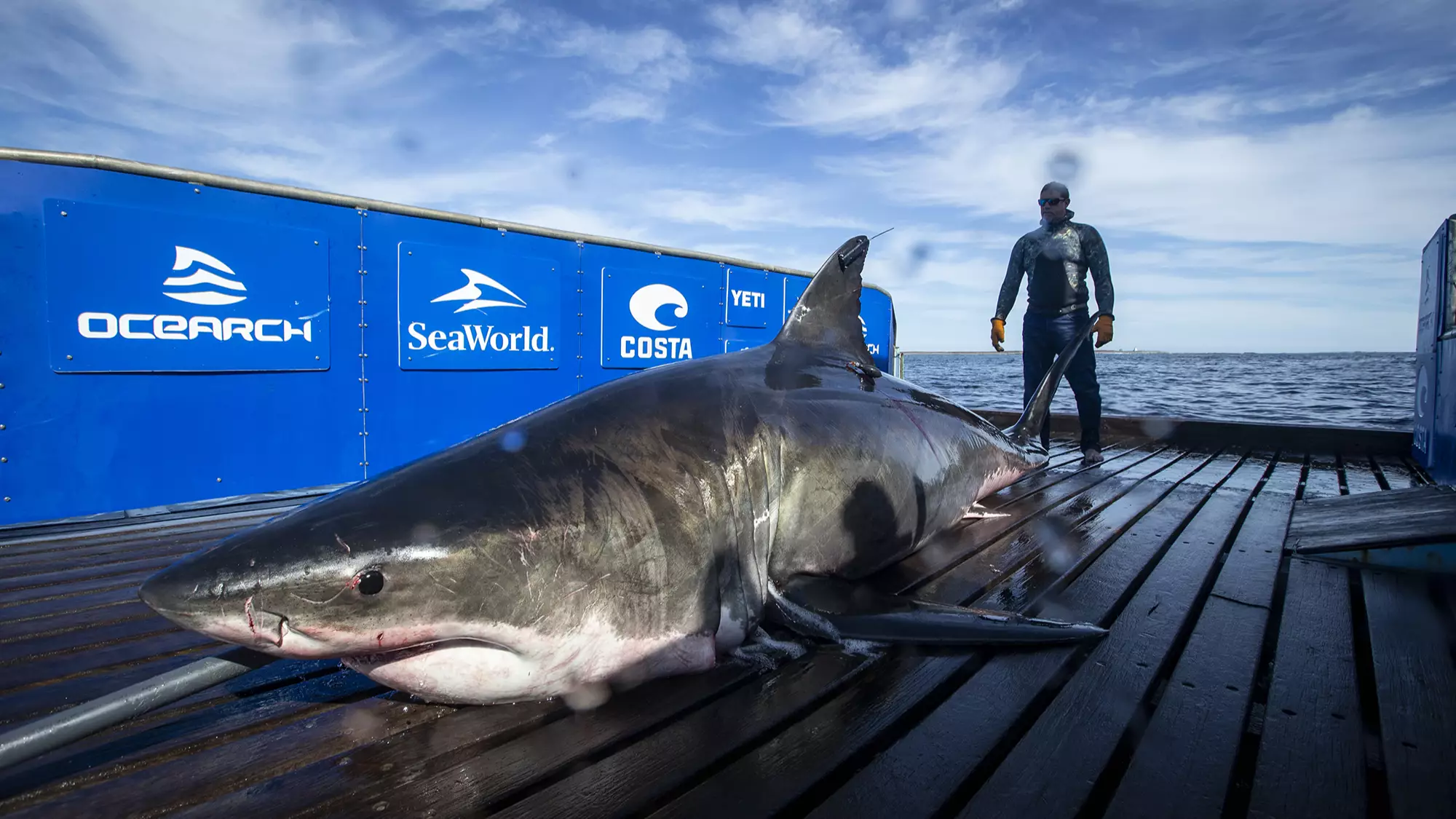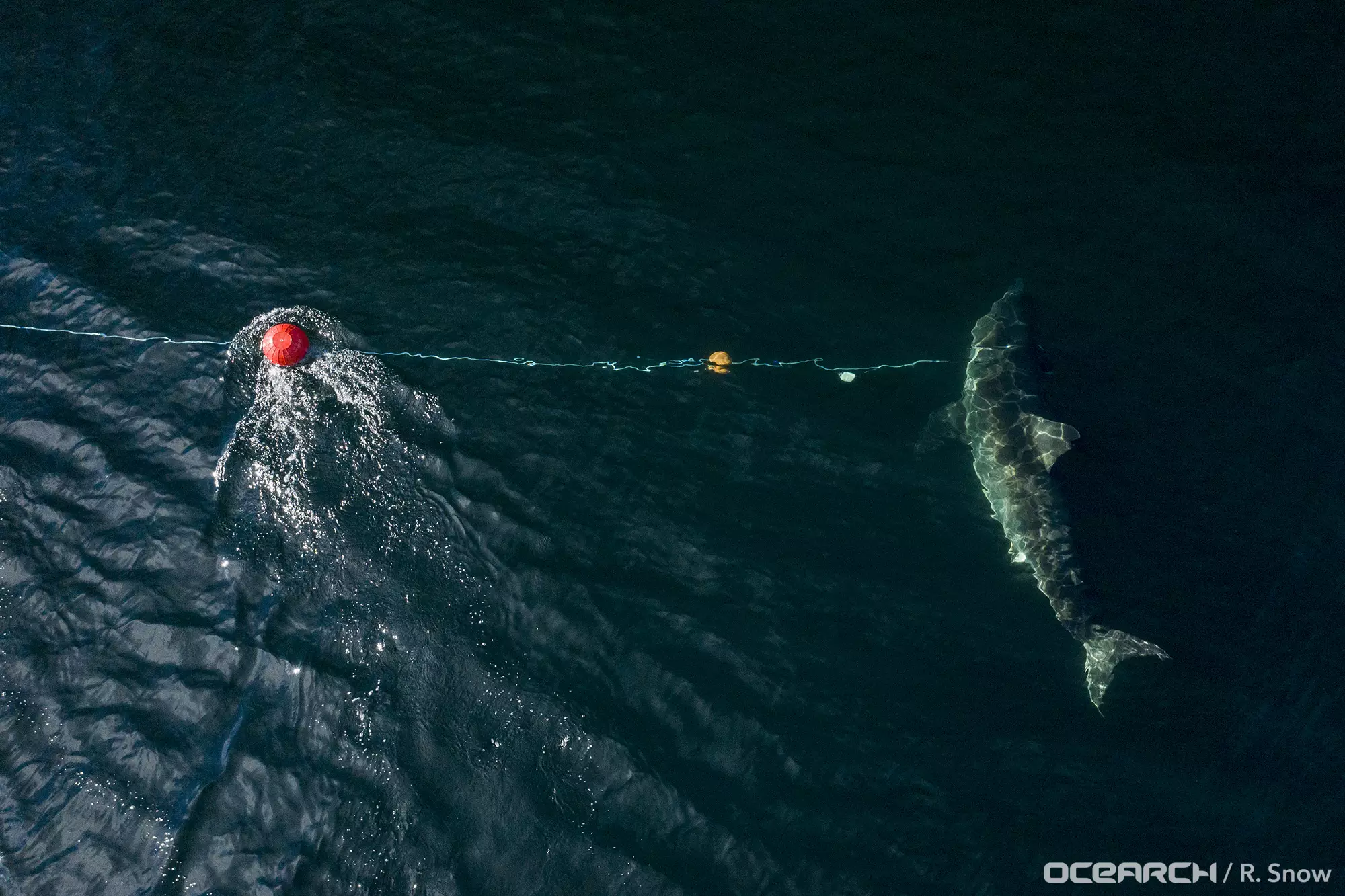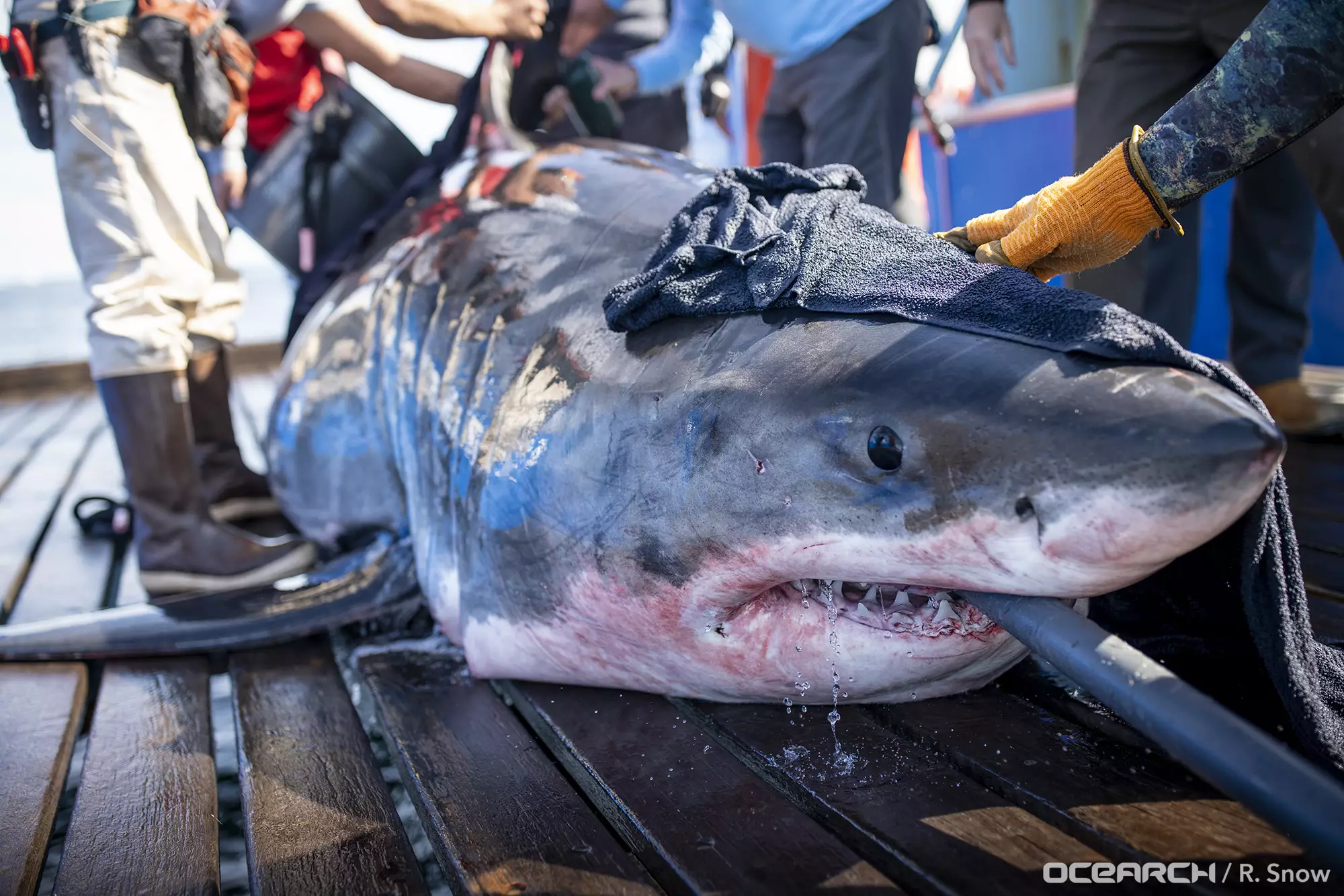
A gigantic shark weighing almost 150 stone has been tagged by scientists off the East Coast of America.
The huge fish weighs in at 2,076lbs and is 16 feet long. It is thought to be the second largest great white shark that has ever been tagged in the north western Atlantic Ocean.
Advert
Come on, look at it. It's an absolute monster.
You wouldn't fancy being charged with the task of dragging that thing from it's watery habitat and attaching a tag to it.
Nevertheless, it is an important conservational task. We've got to keep track of as many sharks as possible to ensure that the numbers are OK, and the sharks are healthy.
This behemoth has been given the name Unama'ki, which means 'land of the fog' in the indigenous language of Nova Scotia, Canada.

It's not the first time that this particular great white has come into contact with science, either. In fact, she's been tagged off the coast of North Carolina, Virginia Beach and Atlantic City.
Now, she's headed off down towards Florida Keys. They don't half get about, these massive sharks.
This is all great news for the people who wish to study sharks. OCEARCH, a not-for-profit organisation dedicated to marine life research, hope that Unama'ki will eventually lead them to where the great whites go to give birth.
They said: "As a big mature female, Unama'ki has the potential to lead us to the site where she gives birth and expose a new white shark nursery."
OK, so all of these gigantic sharks swimming around not too far away from human civilisation has got to be generating a bit of panic, right?
Well, in truth, you're actually incredibly unlikely to ever encounter one of these creatures, let alone get attacked. They're just not that interested.
However, while locals have been reminded of how unlucky you'd have to be to get bitten by a shark, they recommend that you don't take any risks.

The Florida Fish and Wildlife Conservation Commission said there is a higher likelihood of sharks being in the ocean at this time of year.
The oceans 'more than likely contain sharks' just now. Although attack is unlikely, it's certainly not impossible.
That just means you should remain vigilant.
They said: "Shark activity is at its peak in Florida waters during April through October.
"However, shark attacks are still rare, with humans being 30 times more likely to be struck by lightning in Florida than to be bitten by a shark."
They added that bathers and beach users should 'be aware of their surroundings and understand the risks they take swimming in the waters'.
Featured Image Credit: OCEARCH/R. SnowTopics: Sharks, Interesting, US News, Weird, Animals